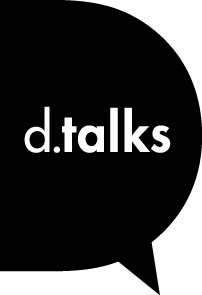Question
Land and Memory started with the question of our city’s evolution and the implications of how we build. The term “heritage” didn’t seem to be enough, we wanted to delve more deeply into the stories of this place. We reside in Moh’kinstsis, and we wanted to explore how memories and histories can help to remake support networks. Our primary question was, from the horizon to the cartesian grid, what have we built? And, how does this influence our sense of belonging?
The evening was hosted in partnership with the Calgary Public Library. It started with an introduction by Kelli Morning Bull and a blessing by Elder Treffrey Deerfoot who brought forward ideas of not wanting to over-harvest resources and of welcoming newcomers. There was much in this blessing that started the discussion on the right foot, that of revealing a connection to the land.
Panelists
Tiffany Shaw-Collinge (Métis) is an interdisciplinary artist, curator and registered architect in Alberta and working at Manasc Isaac Architects. Oscillating between digital and analogue methodologies, her work gathers notions of craft, memory and atmosphere. She has been the recipient of multiple public art commissions such as Edmonton's Indigenous Art Park and Winnipeg’s Markham Bus Station. Among her public art projects Tiffany has produced several notable transitory art works and is a core member of Ociciwan Contemporary Art Collective.
Iman Bukhari holds a Masters in Multimedia Communications and is the CEO of the Canadian Cultural Mosaic Foundation. She has worked and volunteered in the not-for-profit sector for more than 11 years. Iman received the Alberta Council for Global Cooperation’s 30 Under 30 award, and is the producer of the documentary YYC Colours, which examines racism in Calgary. In turn, she has been a trailblazer in both multimedia storytelling and anti-racism advocacy.
Jessie Andjelic is an architect, urbanist, educator, and founding partner of SPECTACLE Bureau for Architecture and Urbanism. Jessie regularly mentors students and interns, and in 2019 was awarded the Young Architect prize from the Royal Architectural Institute of Canada. With her work, Jessie seeks opportunities to create works of architecture that critically examine and influence our cities.
Moderator: Suzanne Harris-Brandts PhD, OAA, is an architect, urban scholar and Assistant Professor of Architecture and Urbanism at Carlton University. She is also a co-founder of Collective Domain, a practice for spatial analysis, urban activism, architecture, and media in the public interest. Her interdisciplinary work bridges design and the social sciences to explore issues of power, equity, and collective identity in the built environment.
Topic Explored
The discussion moved from reflecting on the history of colonial land development, the representation of culturally-diverse needs in planning, and the idea of physical memory—how memory is passed through generations. There were ideas challenging institutional layers of inclusion, an understanding of able-bodied privilege, and notions of sustainability. Relationships between well-being (and definitions of healing spaces), climate, and race were explored through the lens of the built environment. Ideas resonating included how designers must become more active listeners and must seek outside perspectives. More reflection, less coming to the design with an idea, but instead, with a curiosity to listen first.
Moving to the Mezzanine
Following the panel discussion, we moved the conversation to the mezzanine. Produced in partnership with the Calgary Public Library and the Advocates for Equitable Design Education collective, those in the audience were treated to smaller conversations. Our conversation facilitators included:
AEDE: Joy Olagoke, Vincent Yong, Sasha Simic, Mojdeh Kamali, and Veronica Briseno Castrejon
Calgary Public Library: Kelli Morning Bull, Myke Atkinson
d.talks: Francisco Villalobos, Sergio Veyzaga, Darshan Tailor, Sally El Sayed, Mina Rhami, Kim Hong, Alfred Gomez, Angat Desai, Mark Cooper and Christina Amaral-Kim.
We are grateful to each of the facilitators who researched and explored the topic of land and memory, and who brought insights and levels of listening to the mezzanine.
Exhibition and Publication
The Land and Memory exhibition is on view from outdoors at the City of Calgary’s Open Spaces windows at the east-bound Centre Street LRT platform. (124 - 7th Avenue SW). The exhibition is up through December.
The articles that our panelists commissioned for the Land and Memory issue of FOLD can be found at: thisisthefold.org.
Support
None of this work would be possible without the support from the Canada Council for the Arts, with ongoing additional support from Calgary Arts Development and Alberta Foundation for the Arts.



